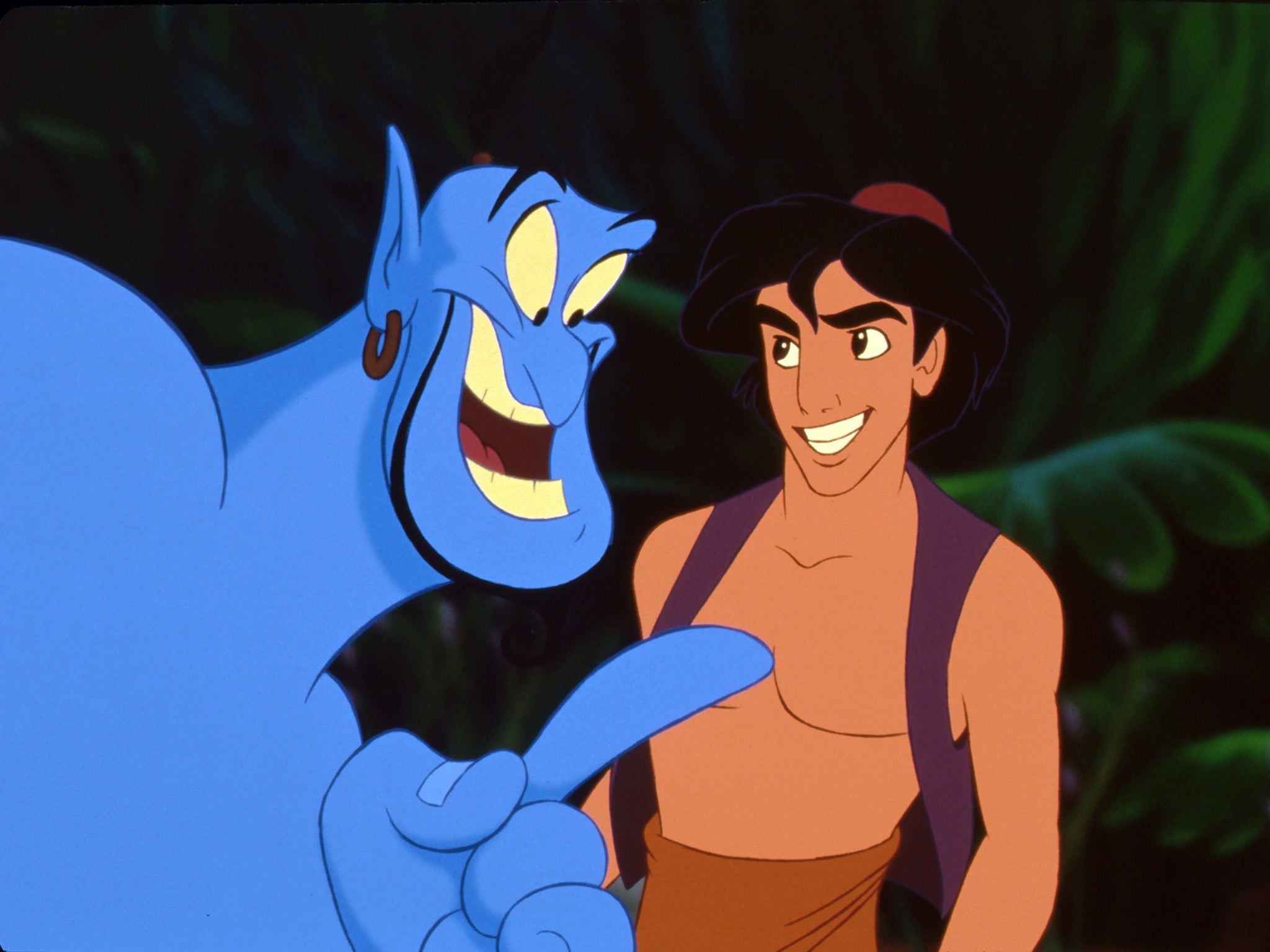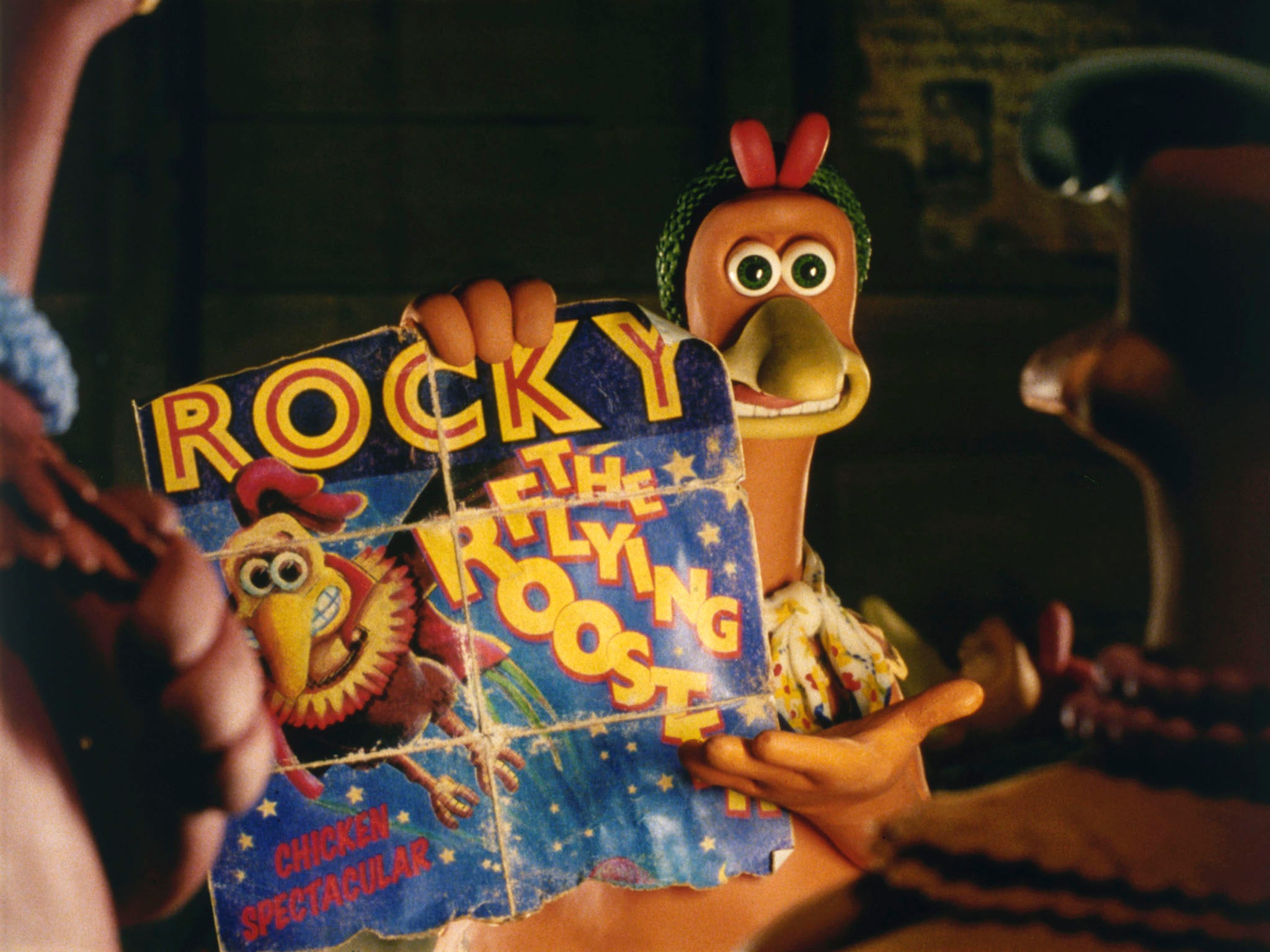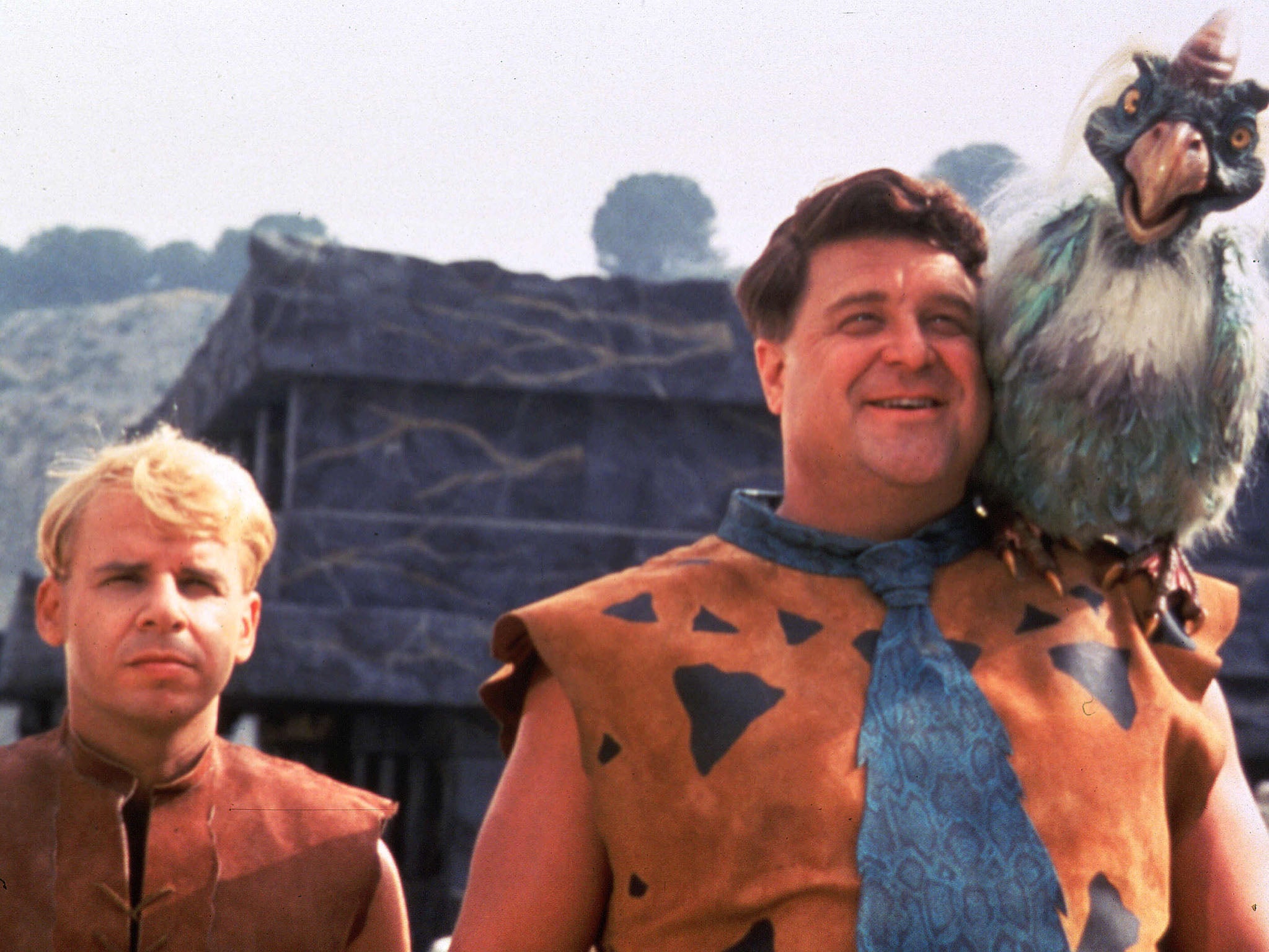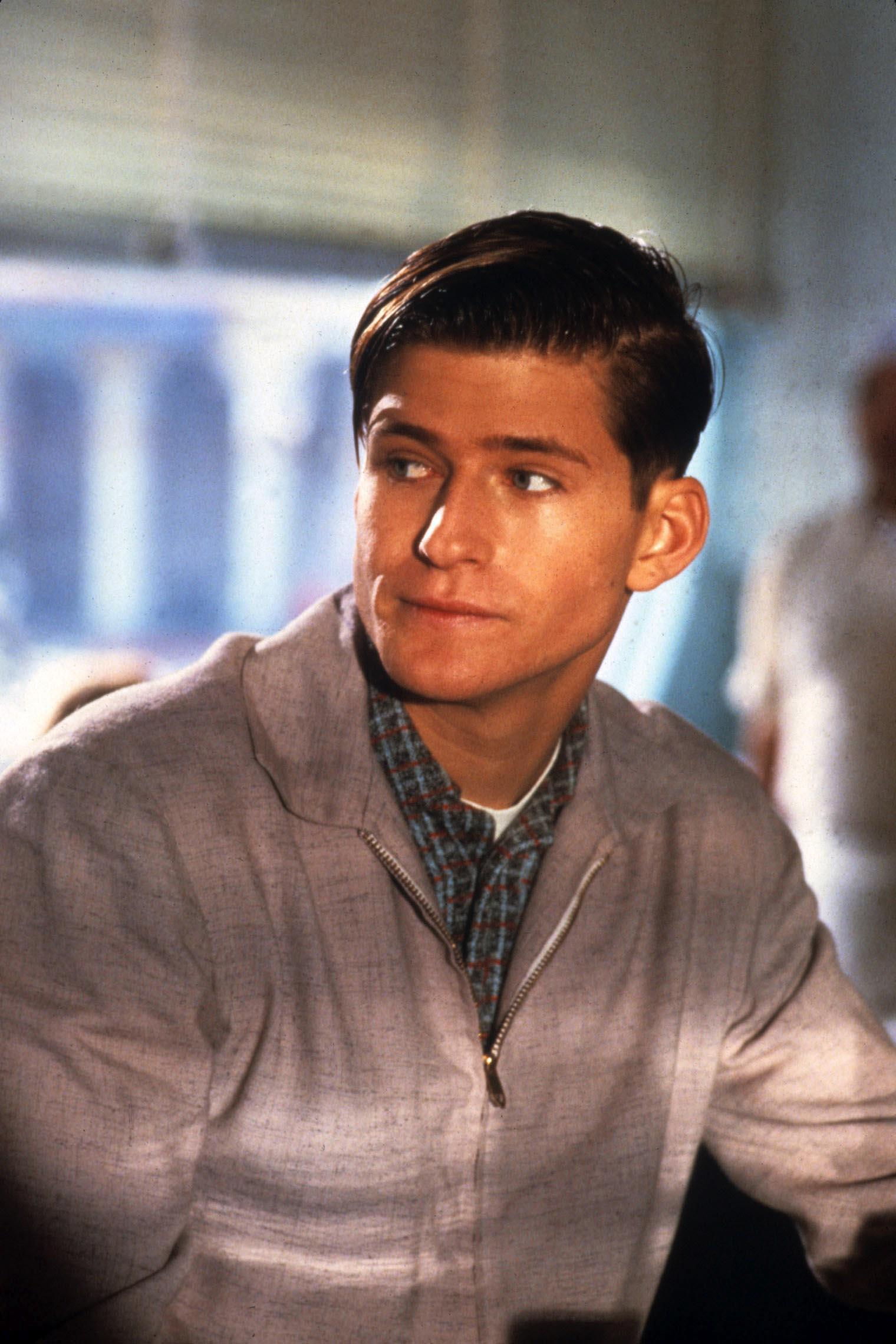‘I am devastated and furious’: 12 actors controversially recast in films, from Johnny Depp to Rachel Weisz
From salary disputes and poor scripts to feuds and voiceovers that apparently sound ‘too old’, Hollywood is filled with stories of emergency recastings due to off-screen conflicts, writes Adam White
Your support helps us to tell the story
From reproductive rights to climate change to Big Tech, The Independent is on the ground when the story is developing. Whether it's investigating the financials of Elon Musk's pro-Trump PAC or producing our latest documentary, 'The A Word', which shines a light on the American women fighting for reproductive rights, we know how important it is to parse out the facts from the messaging.
At such a critical moment in US history, we need reporters on the ground. Your donation allows us to keep sending journalists to speak to both sides of the story.
The Independent is trusted by Americans across the entire political spectrum. And unlike many other quality news outlets, we choose not to lock Americans out of our reporting and analysis with paywalls. We believe quality journalism should be available to everyone, paid for by those who can afford it.
Your support makes all the difference.Nothing riles up actors or their fans quicker than a controversial bit of recasting. Venture into any Fantastic Beasts hashtag – or the YouTube comments section for one of the trailers for the franchise – and you’ll be inundated by Johnny Depp fans condemning his exit from the series.
Often it becomes a poisoned chalice for the film itself, fans quick to express their anger at the idea of a Mummy movie without Rachel Weisz, or a Nightmare on Elm Street revival without the original Freddy Krueger.
Many times it’s the actors themselves who go public with their upset, from Terrence Howard’s frustrations with Marvel to Julia Sawalha’s disappointment over her exit from the Chicken Run sequel.
Money is typically at the root of it, but other situations are arguably far more infuriating: scheduling problems, feuding, a voice that apparently sounds “too old”.
We’ve gathered together 12 times when actors were recast for sequels or reboots of much-loved films, giving way to all kinds of upset…
Johnny Depp in Fantastic Beasts: The Secrets of Dumbledore
Days after the British High Court found that a newspaper report dubbing him a “wife beater” was “substantially true”, Johnny Depp announced that he’d been asked by Warner Bros to resign from the Fantastic Beasts franchise. The actor had played villainous Gellert Grindelwald over two movies, with Mads Mikkelsen stepping in to replace him for the third film The Secrets of Dumbledore. The move sparked an abundance of Twitter outrage, with hashtag campaigns proclaiming support for Depp, and others pledging to boycott the rest of the Fantastic Beasts series unless the actor is reinstated.
Robin Williams in Aladdin 2
Robin Williams’ voiceover role as the Genie in Aladdin is arguably the most famous bit of animated acting in film history. Less famous is the war between Williams and Disney that followed the film’s release. The actor publicly condemned the corporation after he claimed it had ignored his request to only use his voice for the film, and not any of its merchandising. “I just don’t want to sell anything,” Williams said in 1993, “as in Burger King, as in toys, as in stuff.”
At first, Disney denied that it made such a deal with the actor, and sent him a Picasso painting worth $1m as a peace offering. That didn’t work, and Williams refused to return for the straight-to-video sequel The Return of Jafar. After incorrectly assuming it could merely replace Williams in the role – Homer Simpson actor Dan Castellaneta stepped in – Disney admitted they’d ignored Williams’ request about using his voice and publicly apologised. Satisfied with the apology, Williams then returned for sequel Aladdin and the King of Thieves in 1996.

Terrence Howard in Iron Man 2
By the time Iron Man 2 rolled around in 2010, one major cast member looked very different. Don Cheadle had stepped into the role of War Machine, despite Terrence Howard originating it in the first film. The switch proved controversial, with reports claiming that Howard and Marvel had fallen out over money. Further reports claimed that Howard – because he was the very first actor cast in Iron Man – was paid significantly more than every other cast member in the film, including star Robert Downey Jr, something Marvel sought to rectify for the sequel.

Watch Apple TV+ free for 7 days
New subscribers only. £8.99/mo. after free trial. Plan auto-renews until cancelled

Watch Apple TV+ free for 7 days
New subscribers only. £8.99/mo. after free trial. Plan auto-renews until cancelled
“They came to me with the second [movie] and said, ‘Look, we will pay you one-eighth of what we contractually had for you, because we think the second one will be successful with or without you,’” Howard said in 2013. Howard also claimed that Marvel used what would have been his salary to beef up Downey Jr’s pay, and that Downey Jr had deliberately ignored his calls when he sought his help with his contract re-negotiations. The situation was decidedly murky, and remains one of the uglier episodes in Marvel casting lore.
Julia Sawalha in Chicken Run 2
The long-in-the-works Chicken Run sequel drew bad press in 2020 when the first film’s leading lady Julia Sawalha claimed that she’d been dropped from its follow-up – Sawalha claimed she’d been told her voice sounded “too old” compared to how it did in the original movie. “They want a younger actress to reprise the role,” Sawalha wrote in a statement. “I am passionate about my work and I don’t go down without a fight, so I did my own voice test at home and sent it to the producers … However, they stated, ‘We will be going ahead to recast the voice of Ginger.’ I feel I have been fobbed off … To say I am devastated and furious would be an understatement. I feel totally powerless.” Sawalha ended up being replaced in the role of Ginger by Thandiwe Newton, while Aardman Animation declined to comment on the switch.

Rachel Weisz in The Mummy 3
Weisz reportedly turned down the chance to reprise her star-making Mummy role for a third film because she wasn’t happy with the script. You can’t blame her, with The Mummy: Tomb of the Dragon Emperor drawing poor reviews and then vanishing without a trace in 2008. Fans also disliked that Weisz was merely swapped in her role by Maria Bello, who adopted a wonky British accent for the film. “I think Rachel is so brilliant, and she was beautiful in that part, but they wrote my character so differently, I felt like it was a totally different woman,” Bello explained. “She has the same name, but she’s quite a different character.” Audiences could tell, and revolted.
Rachelle Lefevre in Twilight
Lefevre was cast as coven leader Victoria in the Twilight films, only to be replaced midway through the franchise by Bryce Dallas Howard. It was a contentious decision, with both Lefevre and production company Summit Entertainment going at it in the press. “I am deeply hurt by Summit’s surprising decision to move on without me,” Lefevre said in a statement, after she insisted that her involvement with the film Barney’s Version wouldn’t clash with the production schedule for Twilight sequel Eclipse. Summit disagreed, writing in their own statement that Lefevre demonstrated a “lack of cooperative spirit” by allegedly taking the Barney’s Version role without checking with Summit first. Howard, meanwhile, stayed out of it, revealing in 2017 that she and Lefevre were cordial with one another and that the decision to recast had “nothing to do with [them]”, adding: “Nothing comes between women, and she’s awesome.”

John Goodman and Rick Moranis in The Flintstones in Viva Rock Vegas
Both Goodman and Moranis weren’t contractually signed to make a sequel to the 1994 smash The Flintstones, meaning Universal Pictures had to make do without them for 2000’s Viva Rock Vegas. To work around such an issue, Universal made the film a prequel and recruited the decidedly lower-wattage pair of Mark Addy and Stephen Baldwin to play Fred Flintstone and Barney Rubble instead. Audiences were unimpressed and the film was a colossal flop, killing the franchise as a whole in its tracks.
Kathleen Cauley and Jennifer Smith in Harry Potter
In the early Harry Potter films, Hogwarts student Lavender Brown was played by two Black actors, Kathleen Cauley and Jennifer Smith, who were practically extras. By the time Lavender’s role in the series became more prominent – and got actual dialogue – it made sense to recast, particularly with a more experienced actor. But the series faced backlash from fans for casting white actor Jessie Cave in the part, with Warner Bros never explaining why a decision was made to change the character’s race just as she got more to do.
Ryan Gosling in The Lovely Bones
Gosling looked set for Oscar attention after signing up to play a grieving father in Peter Jackson’s adaptation of The Lovely Bones. However, Gosling was fired days into production and replaced by Mark Wahlberg. Rumours swirled about the firing, with Jackson reportedly unhappy with Gosling’s decision to put on weight for the role. Years later, Gosling seemed to confirm the speculation, saying that he and Jackson “had a different idea of how the character should look”. He continued: “I really believed he should be 210 pounds. We didn’t talk very much during the pre-production process, which was the problem … I just showed up on set, and I had gotten it wrong. Then I was fat and unemployed.”
Crispin Glover in Back to the Future Part II

Glover is a standout in the original Back to the Future, playing Michael J Fox’s nerdy father George McFly. For the sequel, though, Glover balked at what he considered an insufficiently low salary, and expressed issues with the script. Peeved, the sequel’s makers recruited a new actor – Jeffrey Weissman – and did everything they could to make audiences believe Glover was still playing the part, including using prosthetics to make Weissman look more like him, and hanging the character upside down at one point in the film.
Weissman claimed that he heard the film’s cinematographer refer to him on set as “Crispin without the trouble”, while actor Lea Thompson – who played George’s wife Lorraine – has revealed she found it difficult to work with an “impostor dude” who wasn’t Glover. Glover ended up suing the film’s producers for using his likeness in the film – via prosthetics – without his permission, with the matter being settled out of court.
Robert Englund in A Nightmare on Elm Street
The 2010 remake of A Nightmare on Elm Street was the first not to feature veteran horror star Robert Englund as dream-haunting murderer Freddy Krueger, replacing him with Oscar nominee Jackie Earle Haley. Fans were understandably upset, with the film swapping Englund’s manic humour in the role for Haley’s grave eeriness. Englund, to his credit, always praised Haley to the hilt, but admitted in 2012 that the film itself wasn’t for him. “It was a little cold,” he said. “But Haley made Freddy his own.”
Edward Norton in The Avengers
It took three tries for an actor to seem comfortable as The Incredible Hulk, with Mark Ruffalo stepping into the role of mild-mannered Dr Bruce Banner for 2012’s The Avengers. Eric Bana and Edward Norton had played the role in separate movies before him, but only Norton publicly condemned Marvel after he wasn’t invited to return.
After Marvel CEO Kevin Feige said that they’d dumped Norton in favour of an actor “who embodies the creativity and collaborative spirit” of the franchise (gulp), Norton fired back in an interview with The Independent. Claiming that his exit was solely down to money – and not any rumoured clashes on the set of 2008’s The Incredible Hulk – Norton said: “I found it a cheap and unnecessary representation that it was about things other than money. They came to me avidly to talk about it and then, at the end of the day, it was just a flat out business decision … Marvel’s going to have to deal with their own karma – they’ve got bigger problems than me.”

Join our commenting forum
Join thought-provoking conversations, follow other Independent readers and see their replies
Comments